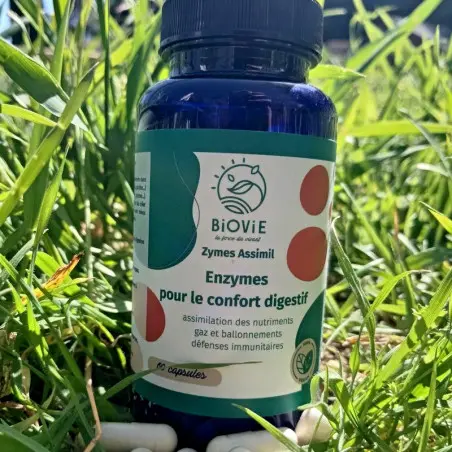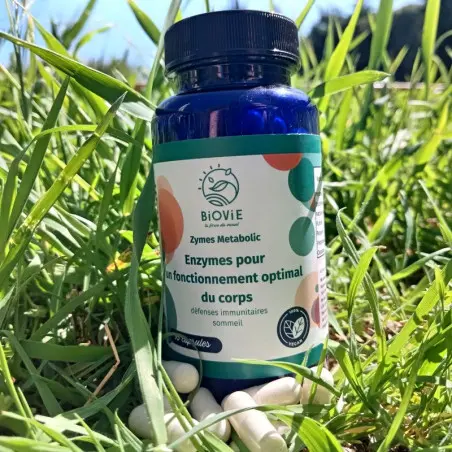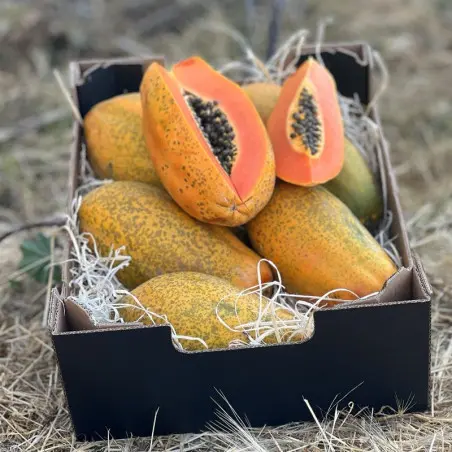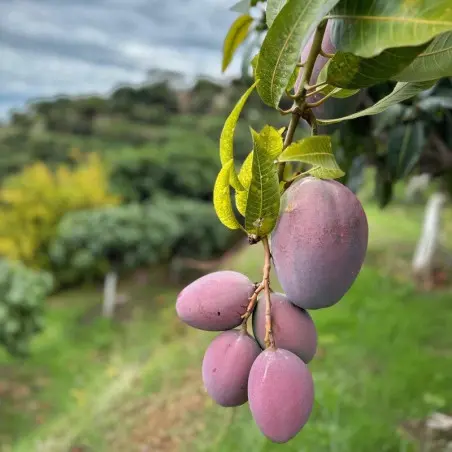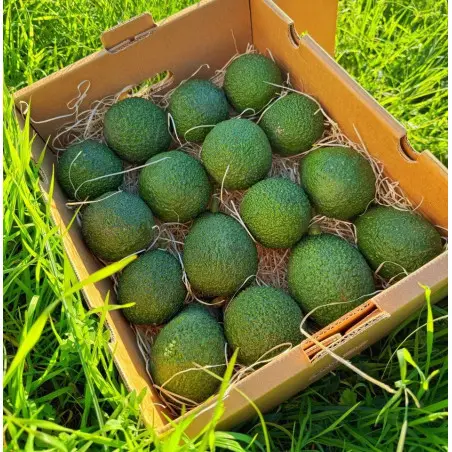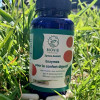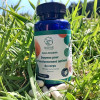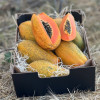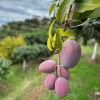Our body needs many elements to function properly.
We know the macronutrients (the famous lipids, carbohydrates, and proteins) and the Micronutrients (vitamins, minerals, Trace elements).
But there is a category often forgotten: the enzymes.
Let's see what they are enzymes, why they are essential and how to find them.
What is an enzyme?
A Enzyme is a biological catalyst: a living protein that accelerates chemical reactions in the body.
It acts a bit like a key that opens the right lock, allowing two distinct elements to come together to form a new whole.
In naturopathy as in functional medicine, they are considered with great importance:
- digestion of food,
- Assimilation essential nutrients,
- energy metabolism,
- cellular regeneration
- Global balance, homeostasis
In short, Without enzymes, the vital reactions of the organism could not occur..
Why are enzymes essential?
Thefood today no longer provides the same quality of enzymes as before.
Enzymes are very fragile: they do not withstand transport, storage, and especially heat well.
A fruit picked at ripeness and eaten immediately is rich in natural enzymes, beneficial to its digestion.
The same fruit, intensively cultivated, picked green, transported, stored sometimes for several weeks, and cooked loses a lot of its enzymes active.
Most individuals today exhibit enzyme deficiencies.
It is necessary to look for solutionsTo replenish these enzyme reserves, which are useful for our good health and both our physical and mental balance, Mental and nervous.
The Japanese doctor Hiromi Shinya presents enzymes as the key to life.
He talks about a "source enzyme" that branches out into different specialized enzymes.
This enzyme would be limited in quantity throughout life. According to him, an unsuitable lifestyleindustrial food production, , Stress, pollutants) depletes this enzymatic capital, accelerating aging and diseases.
Preserving one's enzymes is therefore preserving one's digestive and metabolic balance., nervous and immune.
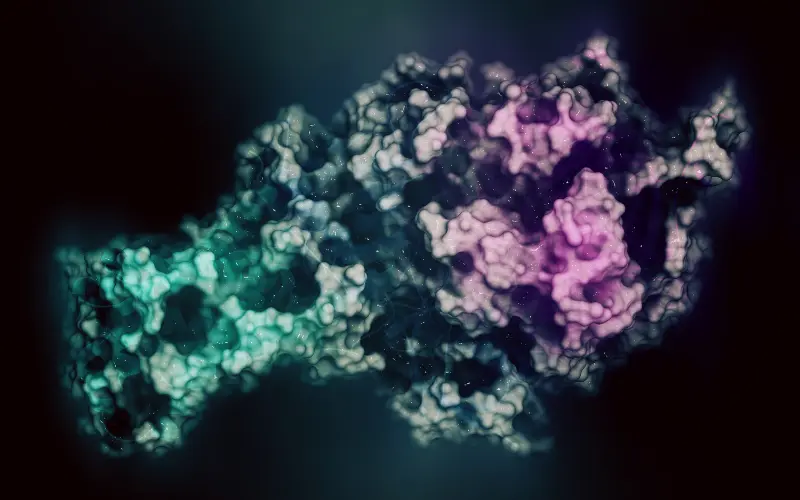
The two major families of enzymes
Digestive enzymes
A digestive enzyme participates in the transformation of food by breaking down nutrients in the digestive tract, thus facilitating their assimilation by the intestine and contributing to preserving the integrity of the intestinal barrier :
- proteases: proteins
- lipases: fats
- amylases: carbohydrates
Digestive enzyme deficiencies can cause digestive disorders such as heaviness, bloating, intolerances or poor assimilation.
The proper enzymatic digestive function is also linked to the health of the intestinal mucosa, to the microbiota digestive and to the capacity for intestinal absorption.
Metabolic enzymes
The metabolic enzymes are involved in almost all biochemical reactions in the body:
- energy production,
- repair and renewal of tissues,
- detoxification, cleansing,
- immune response.
They are influenced by age, lifestyle, diet, environment... hence the idea of preserving one's biological terrain through an appropriate lifestyle.
They can be compared to "skilled workers" who each perform a specific and vital task.
Where to find enzymes?
They are mainly found in the foods consumed as close to their natural state as possible, unprocessed, and as fresh as possible.
We can mention certain foods that are particularly rich in enzymes.
Fresh fruits:
- pineapple is rich in bromelain which allows the digestion of certain proteins,
- the papaya, consumed green contains papain, and the kiwi contains theActinidine that facilitate the digestion of proteins
- the mango contains theamylase which breaks down carbohydrates (starch)
- the banana (especially blackberry) is rich in amylase and Maltase and transforms the starch into simpler sugars
Raw vegetables:
- cabbage, broccoli, radish, watercress are rich in Myrosinase which activates the formation of protective sulfur compounds
- theLawyer contains some Lipases and contributes to the digestion of fats
- the sprouted seeds (alfalfa, soy, wheat, lentils, etc.) are rich in multiple active digestive enzymes
Unpasteurized fermented products:
- the miso, tamari, traditional soy sauce
- the kombucha, , kefir, the unpasteurized fruit vinegars, live yogurt, lacto-fermented vegetables, raw sauerkraut contain enzymes and probiotics
- the Natto, soybean fermentation, rich in Nattokinase, vitamin K2 and probiotics, known for supporting digestion, bone health, and circulation
The cooking and the pasteurization destroy most enzymes, hence the interest in incorporating raw foods and fermented.
We see that, ultimately, each natural food produces an enzyme that allows it to optimize its own digestion.
How to consume enzymes?
Enzymes to support digestion:
- Systematically include Foods naturally rich in enzymes at each meal : Fruits, vegetables, sprouted seeds, pineapple, papaya, lacto-fermented vegetables, lacto-fermented oilseeds, miso, fruit vinegars, natto...
- Consume some fresh foods, natural, unprocessed.
- The meal supplementation with digestive enzymes can be useful in certain situations: heavier meals, unusual meals, meals of parties, outings or restaurant. You can take the enzymes 5 to 10 minutes before meals.
Metabolic enzymes:
- If we want these enzymes to be available, it will be useful to take them. outside of meals.
- We can take them. in the morning on an empty stomach, far from the first meal or the evening before bedtime, ideally at least 2 hours after the last meal. .
Thus, the enzymes will be available for metabolic processes, to promote their reparative, energetic, and antioxidant actions.
Enzymes in detox cures and fasting
During the monodiets, fasting, and other detox cures, enzymes facilitate:
- the transformation and elimination of toxins,
- cellular repair,
- the adaptation of the organism to digestive rest.
Well chosen, they effectively accompany cleansing treatments.
For example, liver enzymes transform toxic substances (toxins, heavy metals, pollutants, medications...) so that they can be eliminated by bile in the digestive system or by the kidneys, via the urine.
When enzymes are used correctly and in the right combinations, they help eliminate waste from the body. They also prepare the body for a fast, a cleanse, or a specific detox cure.
To summarize
- Consume foods naturally rich in enzymes: fresh fruits and vegetables, sprouted seeds, , fermented foods ;
- Support digestion with occasional supplementation during heavy meals ;
- In treatment for targeted support and during a cleansing of the body ;
- I accompany you in Consultation to personalize these tips and adapt them to your situation.



